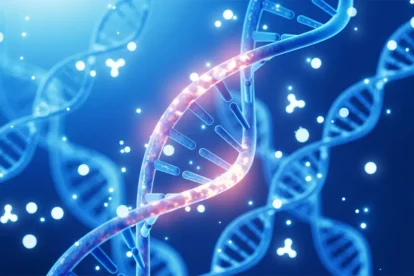Battling Binge Eating: Finding Continued Support Through Overeaters Anonymous

Eating disorders, particularly binge eating, are often difficult to treat, as the root of the addiction may not be identified or treated. Comprehensive residential treatment addresses both the mental and physical aspects of your addiction, getting to the root of the problem. Paired with the 12-step program Overeaters Anonymous, you can find support systems that continue to bolster your recovery and keep your relationship with food healthy.
Just as we need fresh air to breathe and sleep at night to stay alive and alert, we also need to keep ourselves going by nourishing our digestive systems with wholesome and healthy food—but what if food has become your enemy?
Compulsive overeating is a painful and embarrassing battle that over four million adults in the US alone face, and can damage not just the physical body, but the emotional and mental health of the sufferer as well. Often called BED, or binge eating disorder, an addiction to food is not simply consuming too much food, but rather the inability to control the intake of food even after full; even after feelings of shame flood the nervous system.
Compulsive overeating stems from dysfunctionality (or the improper and untimely delivery of chemical messages) in the mesolimbic dopamine system in the brain, the strongest and most important reward system we have as humans. This brain dysfunction consequently affects the health of the body, making comprehensive treatment absolutely necessary in order to address all aspects of your addiction to food simultaneously. While it will be one of the scariest and most difficult decisions you’ve ever made, the care of trained professionals will help you learn how to manage your disorder and how to continue healing through support systems and programs.
Hope is Just a Phone Call Away
866-922-1350Comprehensive Residential Treatment Helps Both Body and Brain
Though research has not yet been able to pinpoint a specific origin for this disorder, it has been linked in many studies to other psychological and mental health conditions such as depression, anxiety, and impulse control issues—even genetics are also thought to play a role. The type of brain dysfunctionseen in compulsive overeaters is also seen in those who struggle with drugs and substance abuse, and, just like any other addiction, it must be treated professionally and comprehensively to attend to both the mind and the body.
A deep embarrassment over the inability to control one’s food intake—something our culture focuses on through fad diets, unobtainable and irresponsible expectations of beauty, and seeking unconditional love—can also cause sufferers to binge eat alone and in secret. This can perpetuate any already-existent depression or shame, thus deepening the need for a treatment program that focuses both on the emotional and physical aspects of this disorder.
Residual, difficult emotions surrounding your food addiction and any co-occurring mental health issues may linger post-treatment, but you can succeed in managing your disorder by finding support systems and communities of people—both personal and professional—who can give you the strength and steps to build a healthier life.
Overeaters Anonymous: Compassion, Understanding, and Continued Support Post-Treatment
Overeaters Anonymous—a classic twelve-step program designed precisely for those who struggle with disorders related to food—is a great way to bolster your post-treatment life and receive continued support from peers and professionals. Whatever residential treatment program you attend will likely encourage you to attend OA meetings during and after treatment. OA, like other twelve-step programs, abides by a theory of abstinence from the substance that you struggle with. Because we need food to survive (unlike drugs or alcohol), this program is not based on a rejection of food on the whole, but rather focuses on fostering your ability to make healthy food choices and understand better the foods which cause you to overeat. These foods tend to be high in fat and sugar because these nutrients share the same neural pathway for behavior reinforcement as dopamine—thus releasing a great deal of this “feel good” chemical into your brain.
Sometimes, individuals going through an Overeaters Anonymous program can find themselves restricting what they eat to an unhealthy and dangerous degree—increasing the potential risk for bingeing and relapse in the future. This tends to happen because positive changes as seen in the eyes of the struggling individual (weight loss, compliments) are noticed and make him or her chemically addicted to those good feelings (dopamine), or because the fear of returning to prior habits and weight turns into unmanageable anxiety.
Because the OA program as a whole knows how difficult building a new, healthy relationship with food can be, there are many varied ways it can lend continued support on your journey. Aside from meetings, an individualized Plan of Eating is developed, helping you to make quality, informed choices about your diet. Writing tasks inside and outside of meetings can help you repair your relationship to yourself, along with selected books and texts to inspire you throughout the process. A personal action plan is created to help you develop habits that coalign with your goals and management of your disorder. Though uncomfortable for some, cultivating friendships and relationships with OA peers outside of meetings can also give you support and love when you need it most.
Begin Your Recovery Journey Today
866-922-1350Using Support Systems to Continue Healing Your Relationship with Food
It is crucial that after you have built a foundation of recovery through professional treatment and Overeaters Anonymous, you continue to rely on the relationships you have built—with program peers, family, friends, and even the one you have built with yourself—in order to heal the relationship you have with food, with compassion and understanding. We all need nourishment and sustenance to survive, and that means repairing your connection to food is paramount over a restrictive diet so that you can lead a healthy, happy life where you, not your food choices, are in control.
Therapy for emotional healing as you continue to build this relationship can also help you remain strong and committed to discovering how to see food as something to fuel your mind, body, and soul, especially if you begin to display any of the following symptoms of a potential relapse:
- Avoiding events and social situations where food will be present (isolation)
- You feel guilty, nauseated, or upset after meals (shame)
- An obsession over what you eat overtakes your need to be healthy (control)
During residential treatment, a continuing care plan will have been put in place, that will provide support for you when challenges arise. One of those supports will be relying upon the relationships you have made, those people who can help you avoid a physical and/or emotional backslide:
- Be honest with family members about your fear of being at events and in situations where food is a factor; allow them to help motivate you to maintain positive dietary choices.
- Reach out to an OA peer who has likely been in a similar position at one point or another; ask for their guidance and strategies in dealing with guilt and shame.
- Work on the need for control with a compassionate therapist for continued support to get to the root of your struggles with impulse control and consequent reactions.
If and when you do find yourself struggling on your journey, reach out to those who understand your disorder and how positively connecting with food is a patient and loving process. These connections and support systems don’t have to be solely from your Overeaters Anonymous program; rather, opening up to family, close friends, and even the community about your struggles can make you feel empowered, confident, and motivated to continue creating a newer, healthier version of yourself. Your body is your temple, and you—along with those who care for you—are strong enough to defend it.
Alta Mira is committed to high-quality addiction care in an inviting and empathetic environment. We offer individualized plans to meet your particular needs and provide you with a custom continuing care plan to maintain your recovery after you have left us. If you or someone you know is struggling with an eating disorder, contact us today.






